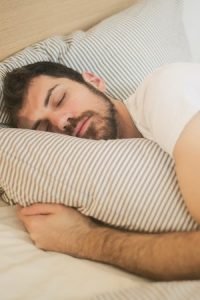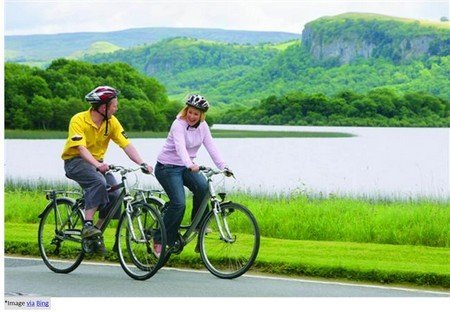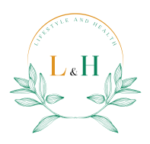Healthy sleeping habits are a must if you are looking to improve your sleep quality. People who find it difficult to get into a deep slumber every night should persistently follow sleep hygiene. Sleep hygiene is a combination of some logical habits and practices. Following these with devotion will make sure that you get good sleep at stretch. Let’s have a look at some of the most significant tips.

Ten Important Tips to Improve Your Sleep Quality
1. Avoid consumption of all interfering items
This includes nicotine, alcohol, caffeine, and other chemicals. All these products work as a stimulant that forces you to stay awake. If you do wish to consume chocolate, soda, tea, coffee, etc., then make sure that you do it at least 5-6 hours before your standard bedtime.

2. Make your bedroom look like one
Create a very peaceful environment in your bedroom. It shouldn’t look like a study or a storeroom. Clear all the extra stuff that is not a bedroom material, keep the lights very dim and make use of your favorite scents. All these together will make sure that you fall asleep instantly.

3. Follow a relaxing routine before you sleep
One hour before you sleep every day, do something that relaxes your mind as well as your body. Taking a bath is very effective; it instantly makes you feel drowsy. Listening to slow and peaceful music (not with the help of your headphones, though) also makes a huge difference in your sleep quality. For some, reading works well too. You be the best judge and decide the most comforting practice for yourself!
You may also like-
Know-How Your Sleeping Position Can Affect Your Sleep
Foods that Affect Your Sleep Quality
4. Stick to your day’s routine/ indulge in physical activities
The most important factor is to feel tired when you are about to retire to bed. Following the same routine day in and day out will exhaust you. But if not that then you can indulge in exercising so that your body demands good rest. If exercising, then make sure that you do it at least 5-6 hours before your regular bedtime.

5. Eat light meals in the evening
Your evening meals should consist of foods that are easy to digest. Also, make sure that you eat at least 3-4 hours prior to sleeping. Sleeping with a full stomach is a bad idea. It may lead to indigestion and thus, interrupted sleep.
6. Restrain from consuming too many fluids in the evening/ night
Drinking a good amount of water and juices is extremely important. But the focus should be on consuming more fluids during the daytime and less in the evenings. Balancing this is very important.
7. Avoid sleeping during the daytime
You may take a 10-15 minute nap, but don’t sleep more than that. This small nap will relax you enough to carry on for the day. But a longer nap will mean that you are too relaxed to feel tired during your bedtime. And this will definitely interfere with your sleeping pattern.
8. Restrict Blue light exposure
Avoid exposure to blue light just before going to bed. Switch off gadgets during bedtime to induce sleep on time.
9. Try Relaxing exercises on your bed
You may have a bad day at work, or feeling stressed, these things can also interfere with your healthy sleep routine. So, try deep breathing just before you head to sleep. Breathe in and breathe out for 5 minutes will surely help you to have peaceful sleep.
10. Natural light exposure
For every action, your brain and body need a signal. So, to have a peaceful sleep at night, try to do a walk or workout session in daylight. With this, your body and brain will easily get a signal that daytime can be full of energy but sleeping in the night is necessary. Natural light also keeps your internal clock system healthy.
Do you know your ayurvedic body type? Take this FREE 3 minute quiz to find out!
FAQ related to Sleep Quality
How much sleep is required for a healthy life?
Sleep condition depends on the person – to – person, usually an adult requires 7-8 hours of sound sleep, to have a relaxed and focused mind.
How does a bad sleeping routine affect my health?
Having a bad sleeping routine can lead to medical issues like heart-related problems, depression, and diabetes. You may also feel a lack of focus and confidence if you are not sleeping properly.
Is this true that older people need less sleep?
It’s a common myth that sleep can reduce with age. As you grow old, you may not have a tiring exercise routine or may not get tired, which can affect the sleeping schedule. But, the body needs the same sleep as it required before.
What should I do if I have difficulty falling asleep?
If you find difficulty sleeping at night try mediation exercises. This will help your body and mind to be relaxed so that you can have a better sleep.
Any home remedies which can help to have a good night’s sleep?
Yes, few home remedies can be effective to have a good night’s sleep. Lavender oil has soothing properties. By smelling lavender oil, or having lavender tea before 20 minutes of sleep, calms the mind and helps you to feel relax.
Moreover, warm milk with honey is best to have peaceful sleep at night. Milk contains an amino acid called tryptophan which plays an important role in the hormones to having a peaceful sleep.
To conclude, try to incorporate the above habits into your daily routine. Getting habitual of these will help you to have a lot of peaceful sleep. Apart from that, try to understand the signals that your body gives you and try to go with the flow. Hope all these tips contribute to better sleep quality!
Sources –
https://www.healthline.com/health/natural-sleeping-remedies
http://healthysleep.med.harvard.edu/healthy/getting/overcoming/tips





